Steel pipe is a common and important material used in construction, engineering, and manufacturing. For large-diameter steel pipes, such as DN800 steel pipe, their quality and safety are particularly crucial. Therefore, strict inspection specifications are crucial to ensuring the quality and safety of steel pipes.
First, Production Standards for
DN800 Steel Pipes
DN800 steel pipes are typically produced by international or industry standards, including GB/T, ASTM, API, and DIN. Manufacturers must strictly adhere to relevant standards during the production process to ensure that product quality meets standards.
Second, Inspection Details for DN800 Steel Pipes
1. Dimensional Inspection: This includes measuring dimensions such as outer diameter, wall thickness, and length to ensure that the steel pipe meets design requirements.
2. Surface Quality Inspection: This includes inspecting the steel pipe surface for defects such as cracks, scale, and scars.
3. Chemical Composition Testing: This includes analyzing the chemical composition of the steel pipe material to ensure compliance with standard requirements.
4. Mechanical Property Testing: This includes tensile testing and impact testing to assess the strength and toughness of the steel pipe. 5. Flaw Detection: Ultrasonic or X-ray techniques are used to detect internal defects in steel pipes.
6. Pressure Testing: Pressure tests are performed on steel pipes to test their pressure resistance.
Third, Inspection Equipment and Methods for DN800 Steel Pipes
1. Dimensional Inspection: Measurements are typically performed using tools such as tape measures, outside micrometers, and wall thickness gauges.
2. Surface Quality Inspection: Visual inspection, magnifying glass inspection, and surface defect detectors can be used for inspection.
3. Chemical Composition Inspection: Chemical composition analysis is typically performed using equipment such as spectrometers and microscopes.
4. Mechanical Property Testing: Tensile and impact tests are performed using equipment such as universal testing machines.
5. Flaw Detection: Internal defects are detected using equipment such as ultrasonic flaw detectors and X-ray flaw detectors.
6. Pressure Testing: Pressure testing is performed using a pressure testing bench to ensure the pressure resistance of the steel pipe.
Fourth, DN800 Steel Pipe Inspection Specifications and Standards
Steel pipe inspections should comply with relevant national standards, such as "Welded Steel Pipes for the Conveying of Fluids Through Steel Pipelines" (GB/T3091) and "Test Methods for Welded Steel Pipes" (GB/T24220). Appropriate inspection specifications should be formulated based on the specific uses and requirements of the steel pipes.
Fifth, DN800 Steel Pipe Inspection Reports and Certificates
After inspection, qualified DN800 steel pipes will be issued a corresponding inspection report and certificate, certifying that the pipes meet the relevant standards and requirements and are suitable for use.
In short, the inspection specifications for DN800 steel pipes are crucial for ensuring their quality and safety. Only by strictly adhering to these specifications and standards can we ensure that steel pipes meet quality standards and provide reliable material support for the engineering and manufacturing industries.
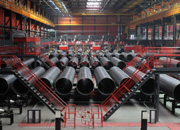 Threeway Steel is known as a professional supplier engaged in manufacturing and distributing a wide range of steel pipe, and our headquarter located the central part of China – Hunan and six associated factories throughout China.
Threeway Steel is known as a professional supplier engaged in manufacturing and distributing a wide range of steel pipe, and our headquarter located the central part of China – Hunan and six associated factories throughout China.
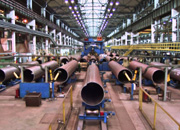 Threeway Steel is known as a professional supplier engaged in designing, manufacturing and distribution of a wide range of steel products with the headquarter located the central part of China – Hunan and six associated factories throughout China.
Threeway Steel is known as a professional supplier engaged in designing, manufacturing and distribution of a wide range of steel products with the headquarter located the central part of China – Hunan and six associated factories throughout China.
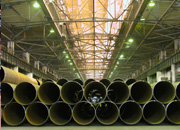 Threeway Steel is known as a professional supplier engaged in designing, manufacturing and distribution of a wide range of steel products with the headquarter located the central part of China – Hunan and six associated factories throughout China.
Threeway Steel is known as a professional supplier engaged in designing, manufacturing and distribution of a wide range of steel products with the headquarter located the central part of China – Hunan and six associated factories throughout China.
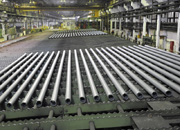 Threeway Steel is known as a professional supplier engaged in designing, manufacturing and distribution of a wide range of steel products with the headquarter located the central part of China – Hunan and six associated factories throughout China.
Threeway Steel is known as a professional supplier engaged in designing, manufacturing and distribution of a wide range of steel products with the headquarter located the central part of China – Hunan and six associated factories throughout China.
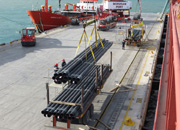 Threeway Steel is known as a professional supplier engaged in designing, manufacturing and distribution of a wide range of steel products with the headquarter located the central part of China – Hunan and six associated factories throughout China.
Threeway Steel is known as a professional supplier engaged in designing, manufacturing and distribution of a wide range of steel products with the headquarter located the central part of China – Hunan and six associated factories throughout China.

